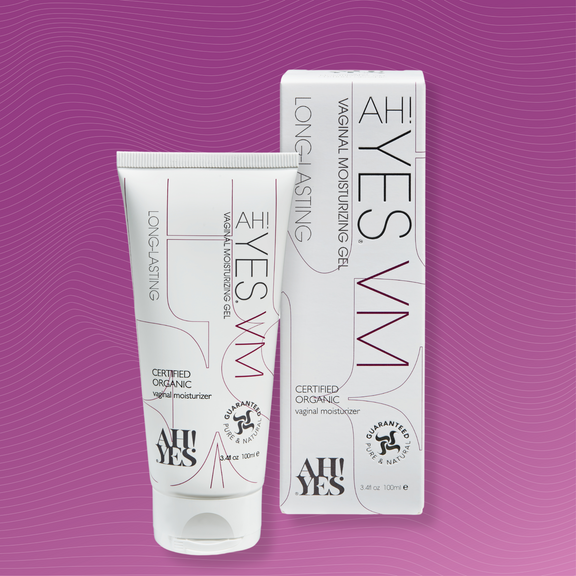Spring Clean Your Intimate Health (Safely)
Now that spring has finally sprung (hoorah!), we’re turning our attention to the benefits of a good old spring clean. But rather than getting our closets organized and our surfaces extra shiny, the focus is firmly on our intimate health.
And here’s why we think you should join us.
Around 60% of what goes onto your skin can get into your blood stream. Many mainstream intimate products are made using synthetic chemicals; some even use ingredients with known or suspected safety issues, such as skin irritants, penetration enhancers, and estrogen mimicking properties!
So if you want to protect the delicate balance of your vaginal microbiome, the first step in your spring clean should be to discard any intimate health products that contain nasty chemicals.
To clean or not to clean
While we’re on the subject of cleaning, let’s get a few things straight:
- Your vagina is self-cleaning. It’s designed to clean itself inside the body with natural vaginal secretions (discharge). If you wash your vagina internally, you risk infections, dryness or odour by upsetting the pH balance of the vagina. This is particularly common if using perfumed soaps or washes [1].
- Your vulva is not your vagina. ‘Vagina’ is often the term of choice for women’s genitalia, but ‘vulva’ is the correct term to describe the external sex organs. The vulva includes the pubic mound, labia majora and minora, clitoris, urethra and vagina. The vagina is an internal organ that runs from the cervix (the opening of the womb) to the vaginal opening.
- Your vulva requires very little cleaning. Generally, it’s recommended that you stick to using water [2]. However, there might be occasions that you want to use more than water alone, such as during your period, after sex, or after playing sports.
If you do choose to wash…
Even though water does a pretty fine job most of the time, there are always exceptions to the rule:
- It’s important to keep the perineal area between the vagina and anus clean, especially during your period.
- If you’re experiencing certain conditions such as stress incontinence, faecal incontinence or vulval dermatological conditions such as Lichen Sclerosus, you may need more than just water – but that doesn’t mean you should reach for the soap.
Remember what we said about spring cleaning? Traditional soaps and shower gels can disrupt the natural vaginal pH, as they contain ingredients such as SLS (Sodium Laurel Sulfate) and Glycerin which can dry out or irritate the delicate vulval tissues. If you’re going to use something other than water, make it a gentle pH-balanced foam wash, such as AH! YES CLEANSE.
Tips for washing your vulva
If you do want to wash your vulva, we recommend the following:
- Wash from front to back
When washing your vulva and labia, make sure you wash from front to back. Washing from back to front can transmit bacteria from the anus into the vagina and urethra, resulting in a UTI.
- Avoid perfumed products
Perfumed products can upset the healthy balance of bacteria and alter the vagina’s pH level, leading to unpleasant irritation. Instead, use unscented products to gently wash around the vulva when required.
- Dry the area well
Once you’ve washed your vulva and the surrounding area, it’s important to dry it thoroughly but gently. Pat the area dry using a clean towel.
What to throw out during your spring clean
Douches
NEVER douche inside the vagina. Studies have shown that douching damages the healthy vaginal bacteria and protective mucus layer, making it more vulnerable to bacterial vaginosis. It also kills the good bacteria, which may increase vaginal odour.[6]
Vaginal steaming
This involves sitting on a steam bath containing a range of herbs, which supposedly clean the vagina and improve the health of the uterus. However, there is very little evidence to suggest that vaginal steaming is effective, as the steam cannot penetrate the vaginal tissue or reach the uterus.[7] The herbs used may also irritate the vagina and vulva, while the hot steam can cause severe burns.
Feminine deodorant sprays
Feminine deodorant sprays, perfumes, detergent sprays, and soaps containing perfume can all disrupt the vagina’s natural balance. It’s normal for the vulva to have a scent and vaginal and vulval odour can change at difference times during the reproductive cycle, so this shouldn’t be thought of as a concern. If you do experience a smell that is unusual for you, see your gynaecologist to rule out infection.
When it comes to your intimate health, ingredients really do matter. That’s why all AH! YES products offer exceptional performance, without comprising on purity (that means no parabens, glycerine, silicone or hormones). We only use ingredients that are vegetarian-approved, occur in nature, and contain no genetically modified elements.



